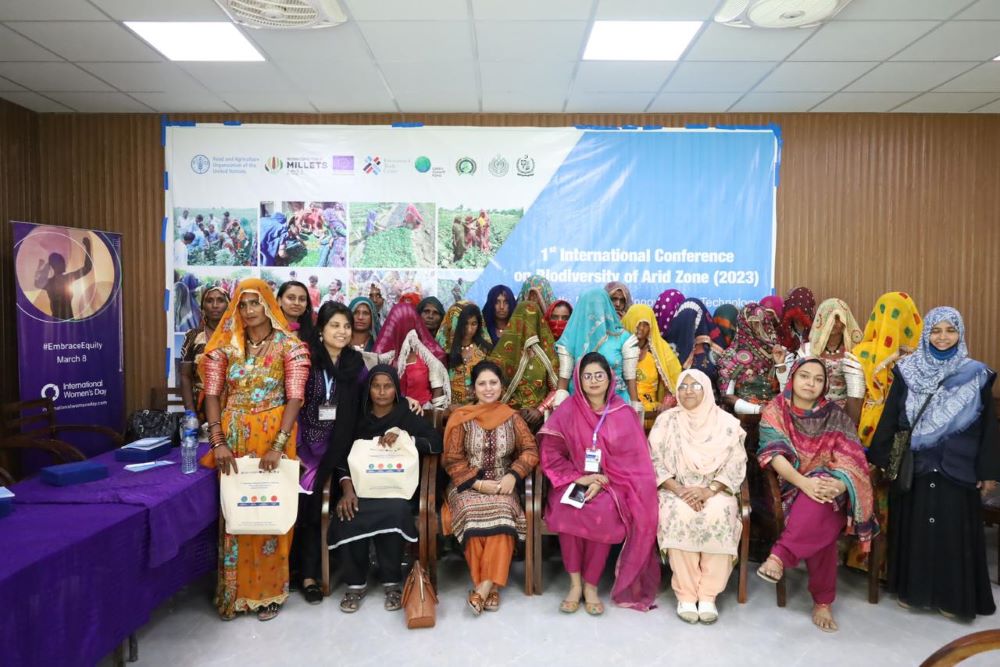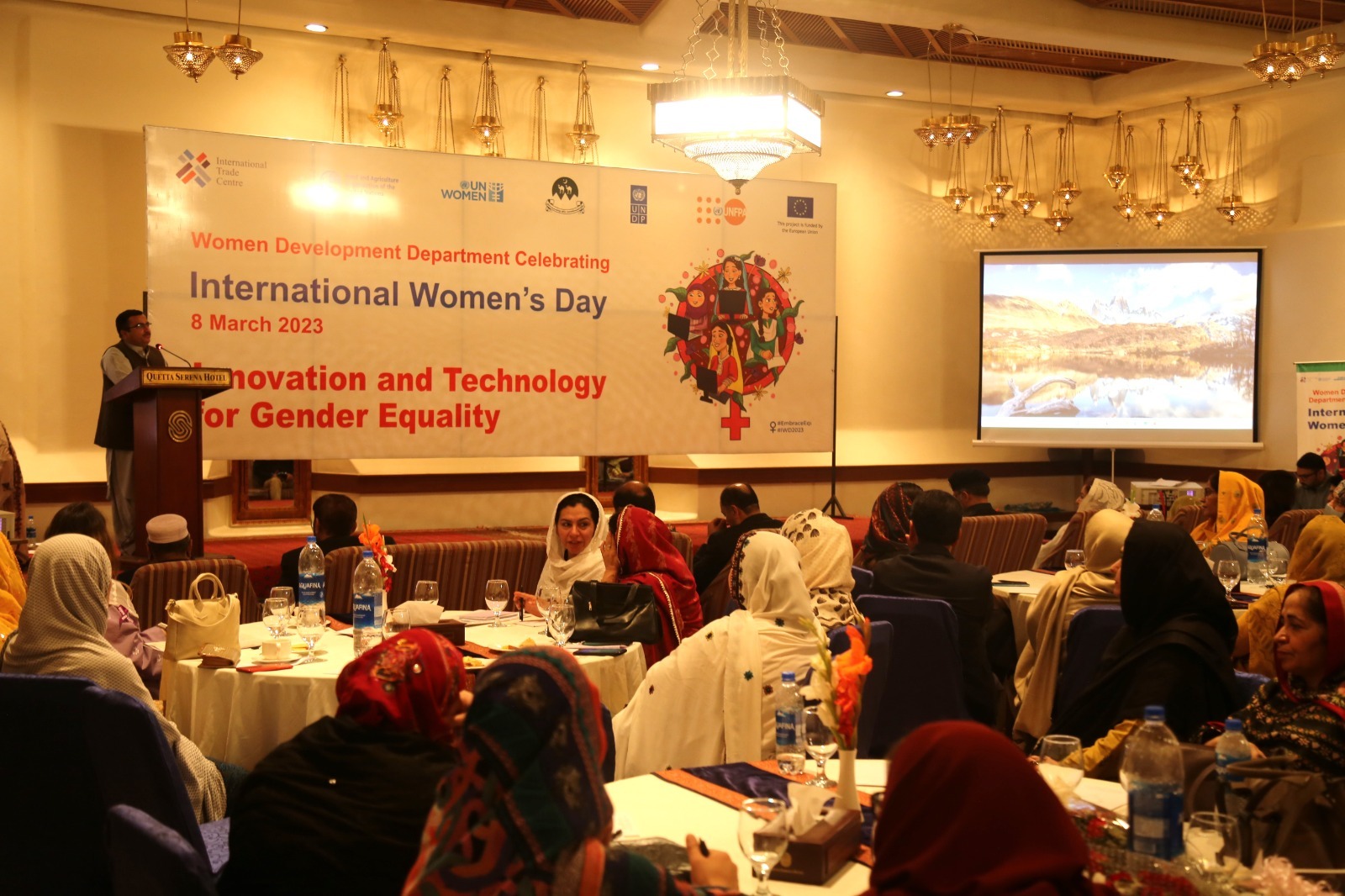Islamabad, 14 March 2023 (GNP): As climate change continues to affect agriculture and smallholder women farmers, access to digital technologies can help improve their ability to adapt to these changes and build a more resilient farming system. It is crucial to recognize and address the gender-based barriers that limit women’s access to resources and technology in agriculture.
The theme of this year’s International Women’s Day, “DigitALL: Innovation and technology for gender equality,” highlighted the potential of technology and innovation to level the playing field and break down these barriers.
Florence Rolle, FAO Representative in Pakistan, emphasized the crucial role of access to digital technologies and tools for women and girls in agriculture during a panel discussion organized in Islamabad by the International Water Management Institute in connection with International Women’s Day 2023 (IWD 2023).
“Women and girls in agriculture are more impacted by climate change; we need to ensure that women and girls have access to digital technologies so that they may get information on weather, soil quality and crop management. This information will help them make an informed decisions; ultimately improving food security and their resilience”, she said.

Rolle suggested that the use of mobile phones and other digital platforms would provide smallholder women farmers with the information they need to grow their crops more effectively. She also noted that the number of girls enrolling in agricultural universities is increasing, which bodes well for the future of women in the sector and in leadership positions. Overall, her remarks highlighted the importance of empowering women and girls in agriculture by providing them with the tools they need to succeed in an increasingly challenging environment.
Further to IWD celebrations, FAO organized a panel discussion on the role of women in agriculture at an international conference on “Biodiversity of Arid Zones”, featuring Prof. Dr. Ghazala H Rizwani, Director, Hamdard University Karachi, Dr. Shabana Sartaj, Associate Professor, English Literature, SAU, Tando Jam, and Dr. Reema Vistro, Lecturer Agronomy, SAU, Umerkot. The workshop was organized at the sub-campus of Sindh Agriculture University (SAU), Umer Kot.The importance of promoting gender equality in agriculture for sustainable development was highlighted, and FAO’s project interventions were praised for helping women learn new, innovative, and climate-smart agriculture practices while providing them with a platform to voice their ideas. Women farmers from FAO project areas shared their experiences and views on how Women Farm Field Schools in different districts of FAO’s interventions are empowering them at the household and community levels.

FAO also celebrated International Women’s Day 2023 in Quetta under the European Union-funded and International Trade Centre (ITC) implemented project: Growth for Rural Advancement and Sustainable Progress (GRASP) Project, collaborating with the Women Development Department of the Government of Balochistan, UNWomen, UNFPA, and UNDP. The event brought together stakeholders to discuss how digital technology can accelerate progress toward gender equality. FAO, through its project interventions, has conducted several trainings on digital literacy and provided tablets (notepads) to men and women farmers in Balochistan. This enables them to stay better informed about markets to sell their produce, prevailing market prices, and quantity demanded in the market, empowering them to make informed decisions to sell their produce at the right price and at the right time.
Ms. Robina Wahaj, Senior Water and Land Officer, FAO, also participated in a live radio program at Planet 87.6, a FM channel at Radio Pakistan and advocated for the importance of digital agriculture to uplift women in agriculture.

